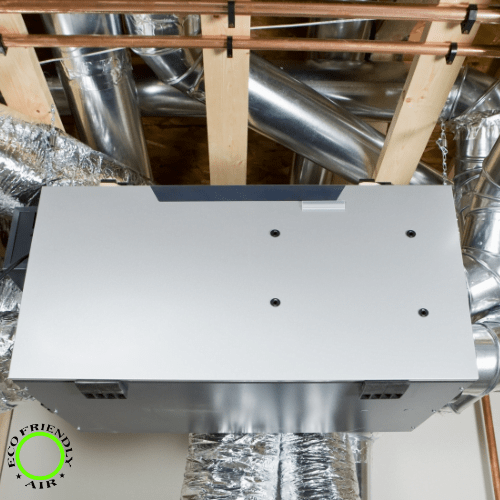Why You Should Have an Air Exchanger and What It Does
Air Exchanger & What It Does:
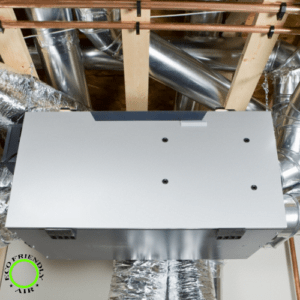
What Does an AC Air Exchanger Do?
An air-exchanger, also known as a heat recovery ventilator (HRV) or energy recovery ventilator (ERV), is a ventilation system designed to improve indoor air quality by continuously exchanging stale indoor air with fresh outdoor air. Here’s a closer look at how an air exchanger works:
1. Fresh Air Intake: The air-exchanger pulls in outdoor air and filters it to remove pollutants, allergens, and other contaminants, ensuring that the air entering your home is clean and fresh.
2. Stale Air Exhaust: Simultaneously, the system expels stale indoor air, along with moisture, odors, and indoor pollutants, maintaining a healthy balance of air circulation in your home.
3. Heat Exchange: One of the key features of an air exchanger is its ability to recover heat from the outgoing air stream and transfer it to the incoming air stream. In the winter, this process helps preheat the cold outdoor air with the warmth from the indoor air, reducing the energy required to heat your home. During the summer, the heat exchange can help cool and dehumidify the incoming air, enhancing comfort and energy efficiency.
Why You Should Have an Air-Exchanger
1. Improved Indoor Air Quality: By continuously bringing in fresh outdoor air and expelling stale indoor air, an air exchanger helps reduce indoor air pollutants, allergens, and contaminants, creating a healthier indoor environment for you and your family.
2. Energy Efficiency: The heat recovery process of an air exchanger helps to reduce the energy needed to heat or cool your home, leading to lower energy bills and increased energy efficiency over time.
3. Enhanced Comfort: With a consistent supply of fresh air and balanced indoor air circulation, an air exchanger can help improve overall comfort levels in your home, preventing stuffiness and promoting a healthier living environment.
4. Moisture Control and Mold Prevention: Proper ventilation provided by an air exchanger helps control indoor humidity levels, reducing the risk of condensation buildup on windows and walls. By minimizing excess moisture, an air exchanger can also help prevent mold growth and protect your home from potential water damage.
5. Odor Reduction: The continuous exchange of air facilitated by an air exchanger helps to remove indoor odors and maintain a fresh-smelling environment throughout your home.
In conclusion, investing in an air exchanger is a smart choice for anyone looking to enhance indoor air quality, promote energy efficiency, and create a healthier and more comfortable living space. By bringing in fresh outdoor air, expelling stale indoor air, and optimizing heat exchange, an air exchanger can have a significant impact on the overall quality of the air you breathe in your home.
When considering an air exchanger for house, there are a few important things to keep in mind.
First and foremost, understanding the importance of indoor air quality and how an air exchanger can help improve it is crucial. It’s essential to know that air exchangers work by exchanging stale indoor air with fresh outdoor air while also recovering heat to improve energy efficiency. Additionally, knowing the maintenance requirements, such as regularly changing filters and ensuring proper airflow, is essential to keep the system running efficiently. Lastly, considering the size of your home and the specific ventilation needs of different rooms can help determine the right type and size of air exchanger to install for optimal performance and air quality throughout your house.
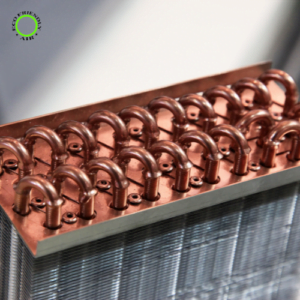
When it comes to air exchanger installation in your home, there are a few key points to consider.
Firstly, it’s recommended to consult with a professional HVAC technician or contractor who has experience with ventilation systems to assess your home’s specific needs and determine the best location for the air exchanger unit. Proper installation is crucial for the effective operation of the system, so ensuring that it is done correctly is essential.
Additionally, when installing an air exchanger, factors such as the size of your home, the layout of the ductwork, and any existing ventilation systems should be taken into account to ensure optimal performance. Proper ventilation of the unit is important to allow for the intake of fresh outdoor air and the exhaust of stale indoor air efficiently.
It’s also important to consider any local building codes or regulations that may apply to the installation of ventilation systems in residential properties. Compliance with these regulations will ensure that the installation is done safely and up to standard.
Lastly, regular maintenance of the air exchanger, including cleaning or replacing filters as recommended by the manufacturer, is essential to keep the system running smoothly and efficiently. By following these installation and maintenance guidelines, you can enjoy the benefits of improved indoor air quality and energy efficiency in your home with an air exchanger system.
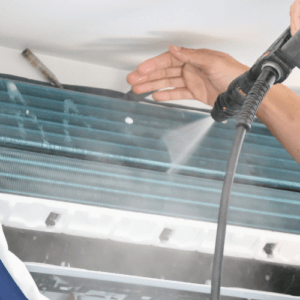
Essential Seasonal Maintenance Tips for Your HVAC System
Essential Seasonal Maintenance Tips for Your HVAC System As the seasons change, so do the demands on your Heating, Ventilation, and Air Conditioning (HVAC) system. To ensure that your HVAC

The Importance of HVAC Maintenance Before Summer in Las Vegas
Why HVAC Maintenance is Important Before Summer in Las Vegas Living in Las Vegas, the scorching summer heat can be brutal. As temperatures rise, your HVAC system becomes your lifeline
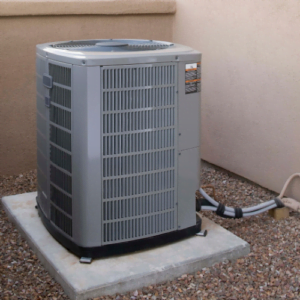
HVAC Air Conditioning Installation and Replacement: What You Need to Know
HVAC Air Conditioning Installation and Replacement: What You Need to Know Air Conditioning Installation Las Vegas When it comes to keeping your home comfortable during the hot summer months, a

